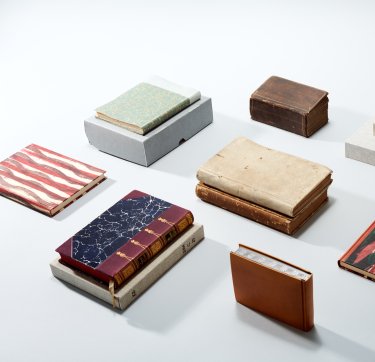Interview with Jasper Faase about the new collection strategy of the KB
The KB published its collection strategy 2024 - 2030 this month. We spoke with Jasper Faase, head Collection Development at the KB, to explain this strategy.
What are the main differences in emphasis in this strategy compared to the previous collection plan?
"In our previous collection strategy, we were already looking more broadly at what we consider to be publications. A publication is a structured textual unit published digitally or as hard copy. That broadening is perpetuated in this plan. You lose a lot of polyphony by only focusing on traditional print. By aligning with current publication culture, we ensure a collection that reflects society, where representativeness comes before completeness.
Hard copies of books remain important and we will not abandon this, but new formats are just as important. So we need to find a good balance but have yet to find the perfect formula for this. It’s tricky because you don't know now what a researcher will need in 30 years. However, I am convinced that it is hugely important for the future that we compile a good collection of born-digital material."
What is polyphony and why is the KB now prioritising collection expansion in this area?
"Your collection should reflect different sections of society and different perspectives. The emphasis for the KB used to be on academic research, so the collection is not a complete reflection of the culture of passed times. Ultimately, you want to see all layers reflected in the collection, including material that might have once been considered lowbrow. As the National Library of the Netherlands, we mainly focus on Dutch culture. Other countries' National Libraries do the same for their own society, so together we compile a cross-section of the culture and thoughts of the whole world. This is a fantastic asset for researchers but also something we pass on to the world itself. It's something that the future can then build on."
Is there a list of titles the KB does not have in its collection but would like?
"We regularly check whether the collection contains at least one copy of all known books. If we discover gaps in this, we approach targeted publishers to fill them. This allows us to hopefully include as many of those works as possible."
Would the KB benefit from a legal deposit requirement, as is the case in other countries? Then one copy of everything published would have to be sent to the KB.
"I take a more nuanced view on this. We have agreed with publishers on a voluntary deposit. So there is no legislation, but there is a regulation to which they are committed. They always send one copy of each publication to the KB anyway. This already works, so legislation would not necessarily help with regard to books. The coverage of publications we include is not necessarily lower than in countries where there is a legal requirement.
However, digital collection from the internet certainly requires legislation. You currently have to contact all rights holders personally if you want to archive a website. This includes not just the owner but also everyone who contributed. It is impossible to archive on a large scale this way. We have taken small steps over the past 20 years to include selected websites, but we prefer to be able to take very broad snapshots to get a good picture of the internet, not just a small number of sites. This has also been the subject of recent parliamentary questions. The Dutch Ministry of Education, Culture and Science is now examining whether additional legislation can be introduced for the heritage field.
We want to take further steps with web-based publications and already receive the digital e-book versions of many books. We have set up a flow for this with the publishers and the CB. We do not yet have such flows for the editorial content of large media companies but the desire to make strides in this is a spearhead for the coming years. We also want to set up a content stream with digital material from media companies such as TMG, DPG or NRC, but are not yet at a point where everything comes in digitally. Considerable investment is needed to get this to a desirable level."
The digitalisation of Dutch book production is also one of KB’s priorities, so that publications can be viewed and researched by as many people as possible. How do you decide what to digitise first? How much has already been digitised?
"Our approach has always been to digitise Dutch book production, especially pre-1960 material. That paper is often of poor quality, so creating an available copy ensures that the original no longer needs to be used. You can also search text in the digital version or use data mining to apply research algorithms to the book. A lot has already been digitised up to 1960, including in collaboration with major players like Google. I cannot say exactly what percentage of all books are involved, but I would venture to say that the majority are digitised. We are more selective when it comes to newspapers and periodicals. We worked with selection committees to draw up criteria to also include these in our digitisation efforts. As a result, we have already gradually digitised many collections over the past decades.
For books, newspapers and periodicals, we see a gap after 1960. This has partly to do with copyrights. We try to come to good agreements with the rights holders so that we can also make more material from more recent periods available.
In the coming years, we will also focus on digitising medieval manuscripts. You can see that a lot of material from old book prints up to 1960 has already been digitised, but manuscripts have been largely left out of this until now. Among other things, we did not have the technology to turn such handwriting into a properly searchable digital copy but we are now taking steps to do so. We do this in the KB collection and in heritage institutions across the country."







